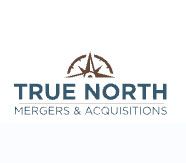Do You Need a Sandbagging Provision?

True North Mergers & Acquisitions
August 26, 2024

“Sandbagging” may sound amusing, but don’t let the name fool you: when it comes to mergers and acquisitions, sandbagging is serious business.
This occurs when a buyer knows about a breach or discrepancy in the seller’s representations before closing but proceeds with the deal anyway. Then, once the deal closes, the buyer pursues indemnification—compensation for damages or losses that occurred because of that breach or discrepancy.
While the ethics of sandbagging are highly debated, one thing is for certain: sandbagging happens all the time. In fact, it happens so often that dealmakers have developed a set of standardized practices for addressing it in merger and acquisition agreements.
But is having a sandbagging provision really necessary? The answer depends on a variety of factors, which we’ll explore below.
Three Approaches to Sandbagging
Pro-Sandbagging Provision
This type of provision is included in the merger and acquisition agreement. It explicitly states that the buyer is permitted to pursue legal recourse for breaches or representation and warranties, regardless of whether the buyer was aware of them before the sale.
This type of provision is designed to benefit the buyer. However, the seller may offset risk by raising the sale price.
Anti-Sandbagging Provision
This provision prohibits the buyer from pursuing indemnification in the event of a breach. An anti-sandbagging provision generally benefits the seller and encourages the buyer to disclose any known issues before closing. Frequently, it also leads to more negotiations and price adjustments.
Silent Agreement
A silent agreement occurs when both parties do not explicitly allow or prohibit sandbagging. In cases where no protection is in place, the buyer’s ability to seek indemnification depends on state law.
Considerations for Buyers
If you are a buyer, a sandbagging provision offers several advantages:
Protects your interests: A sandbagging provision guarantees that you can seek indemnification for any breaches—even those you were aware of before closing. Say, for example, you knew about a possible environmental liability before closing but went through with the deal anyway. Then, after closing, you discovered that the issue was more severe than you thought. In this case, you could pursue compensation for this breach.
Offers more certainty: Without a sandbagging provision, there’s ambiguity about your right to claim indemnification for any known issues. A provision eliminates that ambiguity and reduces the risk of post-closing disputes.
Provides more flexibility: When it comes to complex transactions, issues may only become apparent in the late stages of the transaction. A sandbagging provision allows you to move ahead with the deal, renegotiate the terms, and maintain the right to seek indemnification after closing. This flexibility is important, especially in competitive bidding situations where delays could jeopardize the deal.
Considerations for Sellers
A sandbagging provision offers several advantages for sellers, too:
Eliminates unpleasant surprises: A sandbagging provision prevents buyers from hiding problems they discover during the due diligence process and then asking for money after closing. It also facilitates more open and fair discussions about the price and terms of the deal.
Protects the sale price: A provision also prevents the buyer from negotiating a lower price due to a breach and then seeking compensation for the same issue down the road.
Limits post-closing liability: A sandbagging provision also reduces the likelihood of post-closing indemnification claims. Because of this, it also lowers the amount of compensation the seller needs to set aside in the event of a claim.
Encourages due diligence: Having a sandbagging provision in place also motivates the buyer to do their due diligence. Why? Because if the buyer does not thoroughly investigate and raise issues before closing, they will forfeit their right to compensation for those issues down the line.
Don't Let Sandbagging Sink Your Deal: Get Expert Help Today
Whether you are a buyer or seller, navigating the complexities of sandbagging provisions requires expert guidance and proven strategies. Luckily, True North Mergers & Acquisitions is on your side. As the #1 business mergers and acquisitions firm in the country, our team is here to help you secure or exit a company at the fair price you deserve.
Connect with True North Mergers & Acquisitions Chief Operating Officer and Managing Director Erica Gilson or Lead Managing Director Michael Hubsmith to learn more.
Subscribe to our Newsletter
Sign up for the latest industry insights from True North Mergers & Acquisitions.




